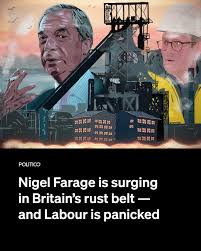
Introduction
The Labour Party has long been a cornerstone of British politics, representing the interests of the working class and promoting social justice. With recent events shaping its direction, understanding the current landscape is essential for both political enthusiasts and the general public. The party’s recent challenges, alongside its resurgent popularity, have implications not only for its future but also for the broader political climate in the UK.
Current Events and Developments
As of October 2023, the Labour Party is gearing up for the next general election, set to be held in early 2024. Under the leadership of Keir Starmer, the party has focused on various key issues, including the cost of living crisis, climate change, and public service reforms. Starmer’s push for a moderate, unified front has garnered attention, particularly in the wake of internal debates regarding the party’s identity and policies.
Labour’s strategy aims to appeal to both traditional Labour supporters and centrist voters, a crucial balancing act in a politically divided nation. Recent polls indicate a positive trend for Labour, often placing them ahead of the Conservative Party in public support. Additionally, the party’s increased focus on community-level engagement and grassroots activism has revitalised local constituencies, leading to notable victories in recent by-elections.
Controversies and Internal Challenges
However, the Labour Party has not been without controversy. Starmer’s decisions regarding previous leadership figures and their influence within the party have been met with mixed reactions. The struggle to navigate the legacy of Jeremy Corbyn’s leadership continues to loom large, with differing views on how to approach former policies and social issues.
Furthermore, the handling of allegations related to antisemitism has posed challenges for the party, prompting calls for greater transparency and accountability. As Labour moves towards the general election, it seeks to strike a balance between addressing these past issues while simultaneously forging a forward-looking agenda.
Conclusion
The upcoming general election presents a pivotal opportunity for the Labour Party to redefine its role in British politics. If it can maintain its current momentum and effectively communicate its vision to the electorate, Labour could secure a significant comeback after years of fluctuating fortunes. For voters, the implications of Labour’s strategies and policies will be particularly relevant as the UK continues to navigate pressing issues such as economic instability and social inequality. As history demonstrates, the Labour Party plays a crucial role in shaping the future of the United Kingdom, making its current trajectory one to watch closely.
You may also like

Understanding the Current Political Landscape in the UK

The UKIP Party: Recent Developments and Future Outlook

Qatar’s Growing Influence in Global Affairs
SEARCH
LAST NEWS
- Remembering Wendy Richard: The Promise to Co-Star Natalie Cassidy
- How Did Anglian Water Achieve an ‘Essentials’ Rating for Mental Health Accessibility?
- Shai Hope Leads West Indies in T20 World Cup Clash Against South Africa
- What We Know About Weston McKennie: Future at Juventus and Past at Leeds
- What We Know About the Upcoming Live Nation Antitrust Trial